Raising the Next Generation: Asian American and Pacific Islander Parents and Caregivers
Asian American and Pacific Islander parents and caregivers report themes of optimism, independence, and self-determination.
As America rapidly evolves into a more racially and ethnically diverse country, we see that future in our children. The Robert Wood Johnson Foundation commissioned an in-depth research study to explore the experiences of parents and caregivers today as they raise the next generation of children. The project began with interviews and focus groups, culminating in a survey of approximately 2,000 parents and caregivers to hear directly from them about their aspirations for their children, the challenges they face, and what enables their families to thrive. Respondents included the same number of parents and caregivers from five racial and ethnic groups: Asian American and Pacific Islander, Black, Indigenous, Latino, and White. Full details on research methodology are available here.
The findings reveal that the overwhelming majority of parents and caregivers share a common sense of optimism about their children’s futures and a belief that their children will have more opportunity to succeed than they did.
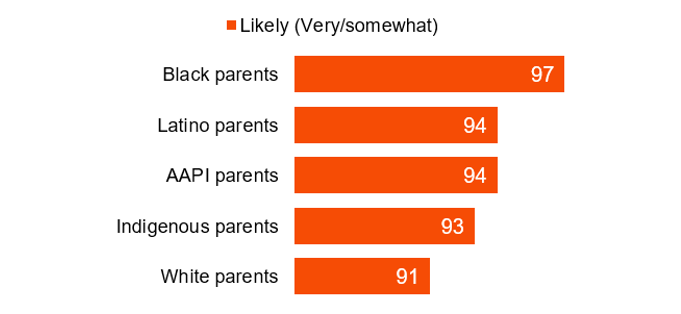
“The biggest hope every parent has for their children is for them to be healthy, happy, educated.” White focus group participant, New York
But they are also clear-eyed about the challenges they expect their children will face, such as anxiety, bullying, and depression.
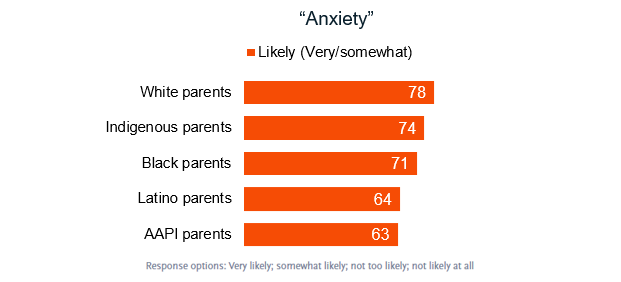
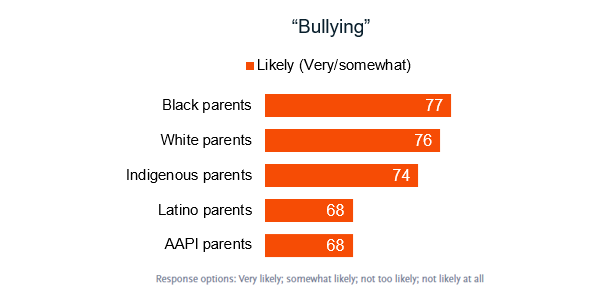
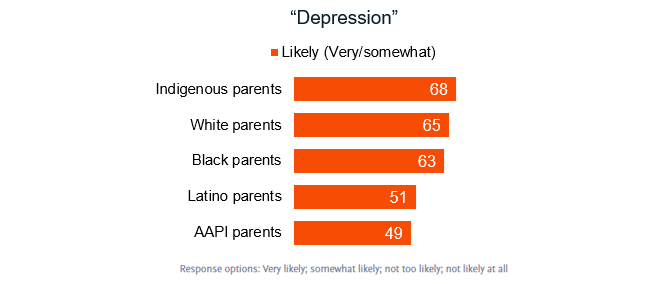
Most parents see inequities and feel that, despite their efforts to give their children everything they need, America does not offer every child the same opportunities. Parents of color, particularly Black parents, fear that racism will limit their children’s opportunities.
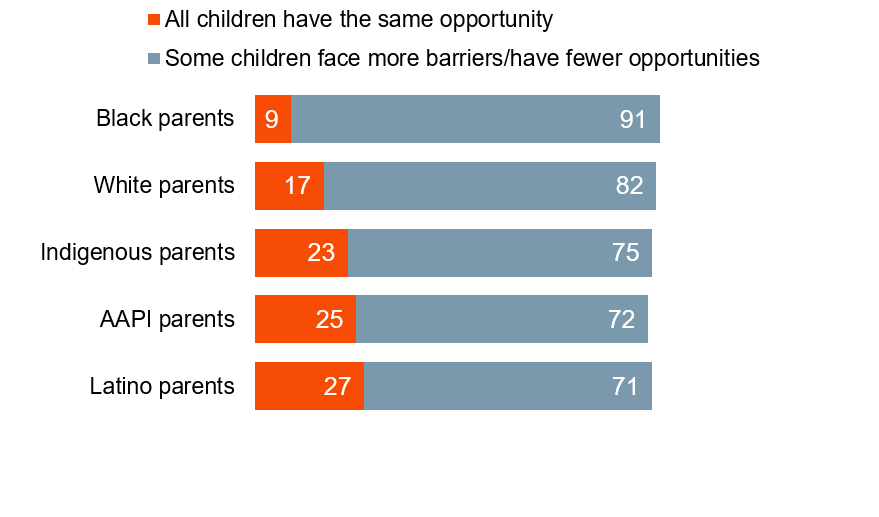
“When I think about racism, I think about my kids. When they grow up, I don’t want them to get insulted … because of their race.” Latino focus group participant, Texas
Despite these challenges, parents report relying on their strong work ethic, their creativity, and a feeling they can change their family’s situation to help them get through trying times.
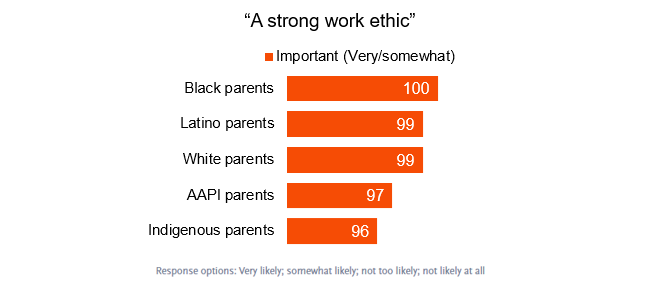
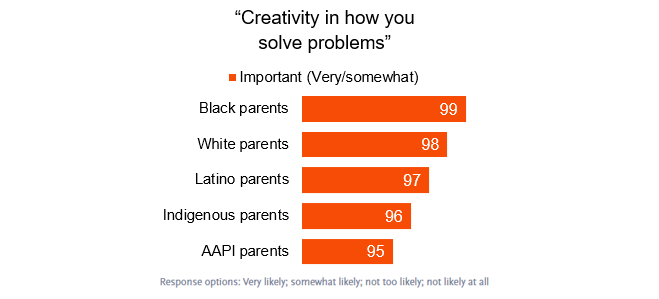

“Once you have a kid, once you have a family, there’s no failing.” Asian American and Pacific Islander focus group participant, California
There is widespread agreement among parents and caregivers surveyed that a strong safety net and government policies that support families are important to helping families get through hard times and thrive.
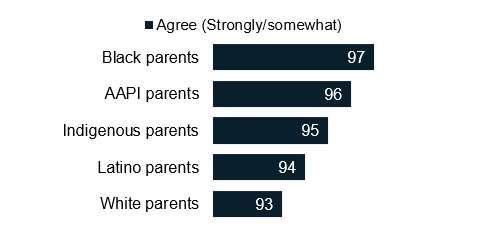
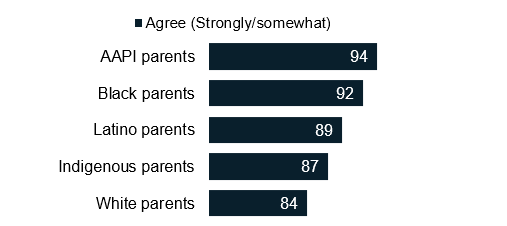
The Robert Wood Johnson Foundation believes everyone should have a fair and just opportunity for health and well-being. Parents and caregivers should be at the center of the discussion about policies, systems, and supports that will help the next generation of children thrive. This study is designed to elevate their voices and help foster that dialogue.
Explore more survey findings from each group of parents and caregivers by race and ethnicity.
Asian American and Pacific Islander parents and caregivers report themes of optimism, independence, and self-determination.
Black parents’ and caregivers’ experience raising children is one that is marked by optimism while facing long-standing, systemic barriers to thrive.
Indigenous parents and caregivers surveyed paint an interesting picture—a dichotomy that reflects a complex and complicated reality of their nations and communities in America.
Latino parents and caregivers see a hopeful future for their families and are determined to see their children get more opportunities to succeed in life than they did.
White parents and caregivers report themes of optimism, but they worry about their children's mental health and don't see the same opportunities to succeed for all children.
“Raising the Next Generation: A Survey of Parents and Caregivers” examines what it is like to raise children in America today by asking questions to equal numbers of parents and caregivers from five different racial and ethnic groups: Asian American and Pacific Islander, Black, Indigenous, Latino, and White. The survey builds on interviews and focus groups conducted over an 18-month period in 16 cities and in seven different languages with parents and caregivers from more than a dozen racial, ethnic, or cultural backgrounds. The survey and qualitative research were conducted by the nonpartisan research firm PerryUndem and a broad set of partners with culturally specific expertise.